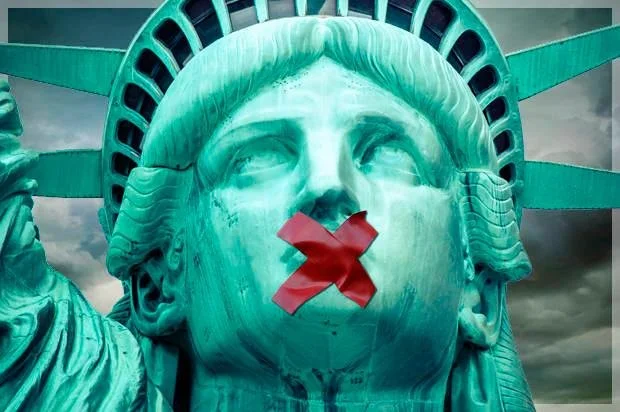The Attack on Discourse
Courtesy of Shutterstock
As the United States continues to divide itself based on political affiliation, there is one thing that is becoming less and less important: free speech. When the President of the United States condemns certain news outlets for disagreeing with him, and this idea of "fake news", we progressively regress. Nowadays, simply mentioning party affiliation, or an opinion on something could mean losing friends and family as well as ostracization. Political discourse or any discourse for that matter is under attack.
One of the main things that come into question is hate speech and free speech and what should be protected. In my opinion, it all should be protected. Obviously, threats to another person yield legal trouble which is totally understandable. However, more and more it seems as though that free speech is being confused with hate speech due to the simple fact that a person gets offended. And it is this fact that is troubling to me because this then prevents people from engaging in any real discourse, as they fear to say anything remotely controversial that would offend the other person. For instance, in the "Jordan Peterson vs. Cathy Newman Debate," Newman asks Peterson "why should your freedom of speech trump a . . . person's right not to be offended" to which Peterson replies "in order to be able to think, you have to risk being offensive" to which I agree. For there to be any progress in a discourse, people must risk offending the other person in order to present their full ideas instead of sugar-coating it to ensure that the other person does not get offended. The main purpose of discourse is not necessarily to get another person to agree with you but rather to understand your point of view, but that will not be possible if you can not express yourself completely out of fear of offending them.
This was prevalent especially during the first year of President Trump's term where universities had student clashes with guest speakers that did not fit within their opinions. While some of these speakers were known to have rather extreme views (as seen with UC Berkely and Yiannopolous), shutting them down usually results in no progress and in fact might make them feel stronger about the opinions they had. In these instances, many saw the solution to shut down speech they found offensive through protests-turned-riots.
